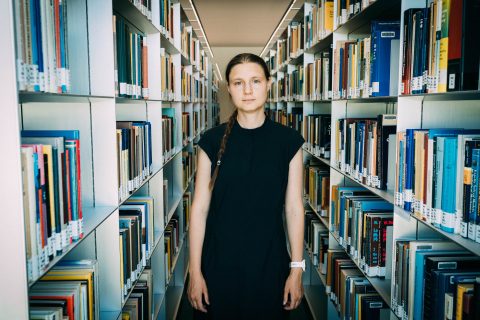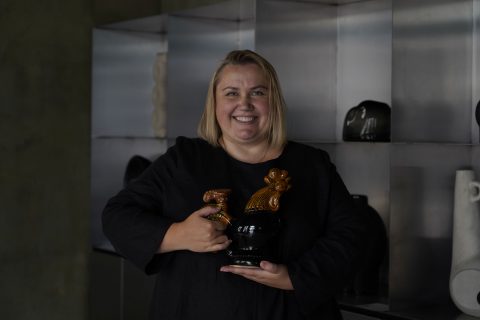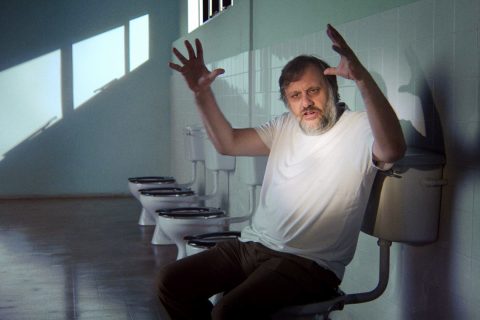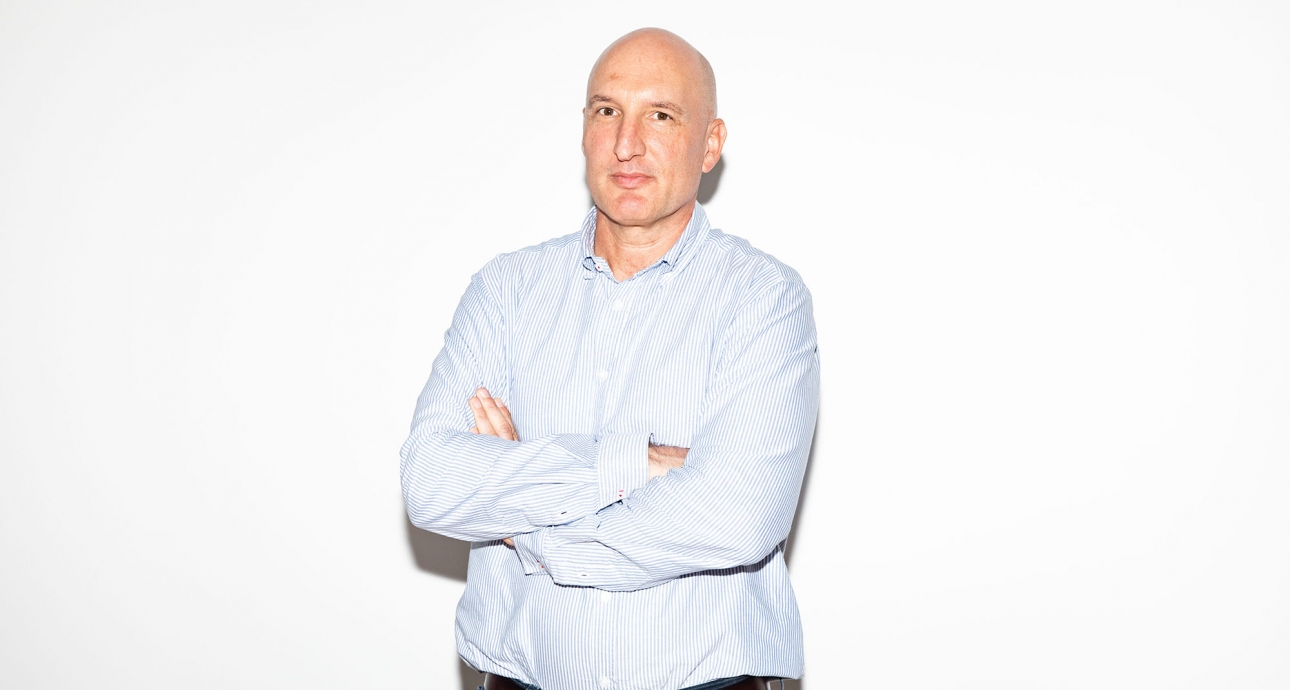
“We Write About the Ukrainians’ Willingness to Break Away from Russia”: Chief of the Ukrainian NYT Bureau on Work during the War
Andrew Kramer has started working as a journalist back in the university days. He wrote to the student magazine, then to the small magazine in his hometown. Having gained some experience, he went on to work at the Associated Press, Washington Post. For the last 15 years he has been a resident author at The New York Times.
In 2014, together with the other investigative journalists started working on Dark Arts — a series of articles on the Russian impact on the US politics. He proved that one of the advisors to Donald Trump had received $12 million from the Russian government. Kramer received the 2016 Pulitzer Prize for his investigations.
Before being appointed a Chief of the Ukrainian bureau, the journalist had lived and worked in Russia for quite some time, which was the reason for criticism from the Ukrainian audience.
Please, tell a bit about yourself. Where are you from?
I am from Northern California, I studied at the university there, and went to graduate school in England, at Oxford University. Studied XX century history.
How did you get into journalism?
People get into journalism because they don’t find a path to do anything else.
I like that this job gives an opportunity to look at stories, parts of the world that you wouldn’t normally be able to do. Amazing thing is that they actually pay you to do this.
I had a fairly typical path. I got into journalism initially in college, followed by a position in my small hometown newspaper. And then I worked for the Associated Press and the New York Times.
Once you said that there are no real scoops. What did you mean by that?
This is about investigative journalism, one of the things we actually do here in the bureau.
Nowadays, most information is in public access. One can create an article just by pulling and weeding together the information which is already public. And it is sometimes called ‘an intellectual scoop’.
So I claimed that I used to not believe in scoops, but now I do think that it is possible now to find information that was not public.
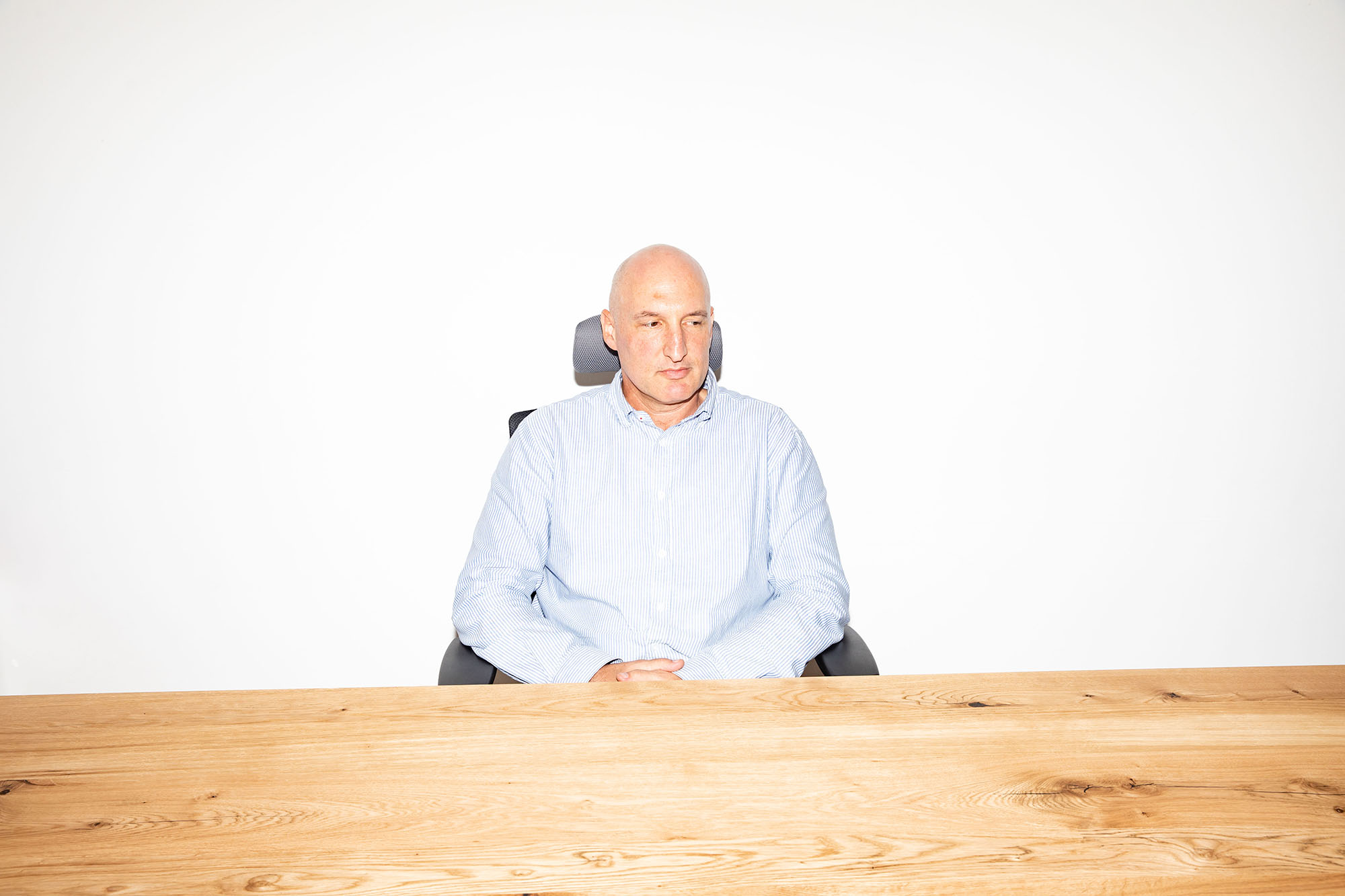
There is an idea that, with the rise of social media and bloggers, the age of big journalism is over. What do you think about it?
I don’t think so.
Not everyone is able to spend their entire day researching a topic, studying information just to produce a few sentences in an article. As well as, not everyone is able to travel to Kramatorsk to visit frontline to report about events there. People value such journalism. NYT, for example, has millions of subscribers who pay for professionally reported stories.
Though that’s one thing the social media changed. Associated Press, a news agency, was extremely fast in reporting news – and this was before Twitter. Now I think that Twitter might be even faster than some wired news services. So the social media has made information appear at the lightning speed and brought to public. What it doesn’t do is filter this information in any way, and I think that’s why there’s still a demand for traditional media.
Is the NYT bureau in Ukraine already working?
Yes.
How many people are there in your team?
Right now we have 5 or 6 reporters and as many photographers covering the war in Ukraine; we also have Ukrainian translators and local reporters who have been doing amazing work for us. Longer term, it’s not clear how many people will be here, but we are set to work here continuously in the years to come.
How many Ukrainian journalists work with you?
Five. They find stories, translate, write stories, work closely with foreign journalists.
Could you name them?
Sure.
Maria Varenikova, who has been working in NYT for 3 years and has done a number of important stories during the war. Oleksandr Chubko, who’s been working on the investigations of the massacre in Bucha, among other topics. Natalia Yermak is working in the East of Ukraine and has written a very important article about being Ukrainian and witnessing death. And we have Natalia Novoselova and Nastia Kuznetsova working with us, who are searching for the news.
What are your duties as a chief of the bureau?
My duty is to do the best I can to cover Ukraine and to tell its story to readers in the US and around the world. It’s also a duty to listen to different voices on Ukraine – from the perspective of the political party in power as well as the opposition. Also, I have to look not only at politics, but culture, military affairs, issues of the justice system, and it’s my responsibility to do my best in conveying them.
I am open to listen to as many stories of the Ukrainian people as I can. And to give their, not my own, opinion.
Are you an editor or a manager?
You see, the bureau chief is a player coach. So I mostly work as a reporter, and eventually there would be 3 or 4 other reporters as well, so I would work alongside them, and also be the point of contact.
Does the head office set you any KPIs?
A basic arrangement: I write stories, they get them published.
How is the work organized in the bureau?
We come up with the ideas for articles and send them to the editors. Most of our editors are based in London, others are in New York. They decide what is interesting and what is not. Then we write articles and send them to the editors. No article is published without editing.
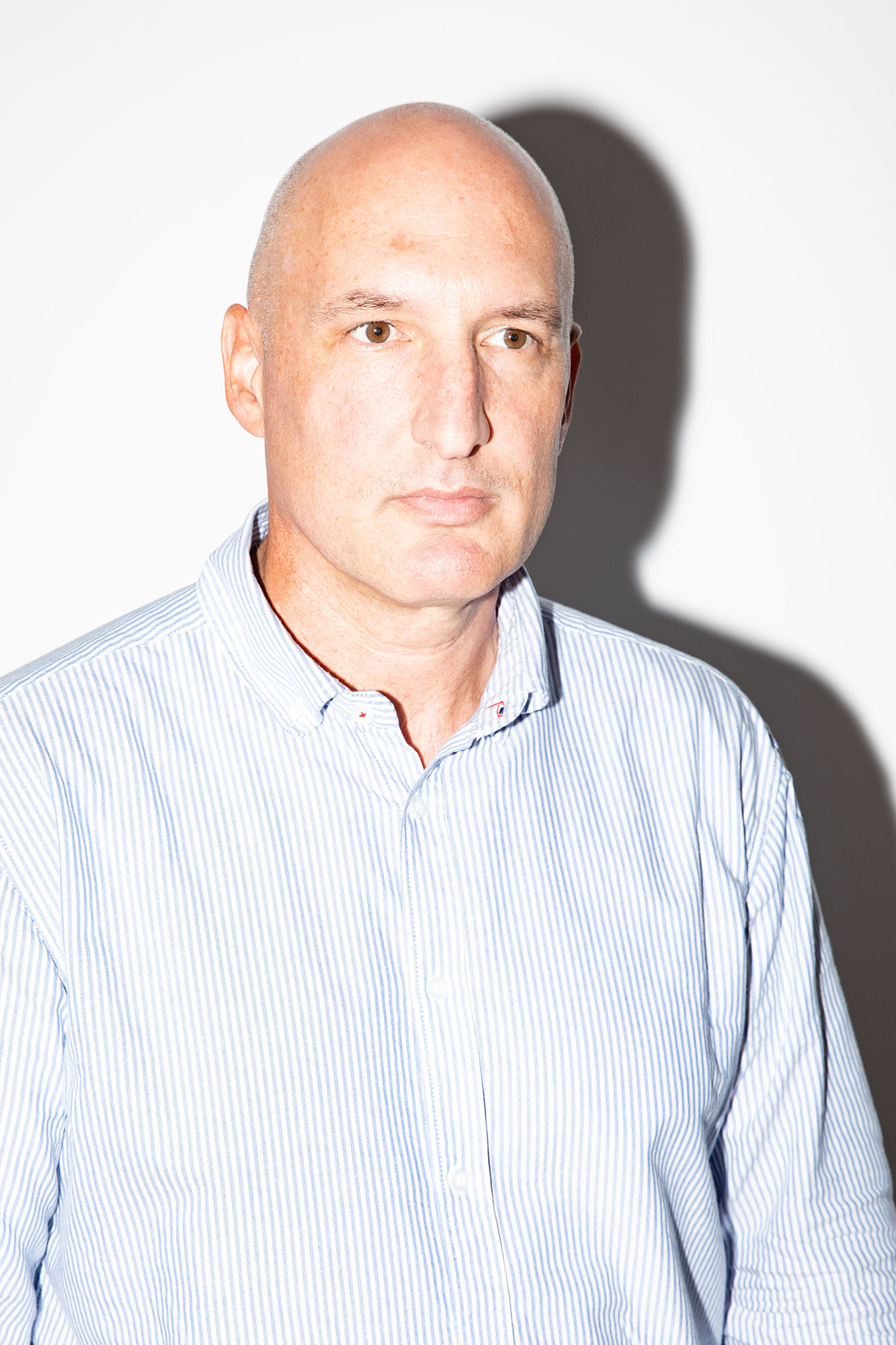
Are you subordinated to the NYT international department?
Yes.
What issues is your team currently working on?
Mostly right now we are covering the Russian war in Ukraine, which is obvious. And we are doing this since November, actually, when I started writing about an escalation then at the frontline.
There are, in fact, a lot of topics to write on. Now we are looking closely at a cultural separation from russia. People are very angry at everything coming from Russia and wanting a clear break from it. So we would write about these issues as well. We also cover military issues, the frontline, the American supplies of weaponry to the Ukrainian army. What it means to the European security, to the United States, and most of all, what it means to Ukraine – these are our topics.
Are there any plans for the bureau to remain here after the war?
Yes. The bureau is open long-time to cover Ukraine from Kyiv.
Before coming to Ukraine you worked in the russian bureau as a reporter, and lived there as well. For how long?
More than 15 years. All this time I was working for the New York Times.
I know it’s been an issue in Ukraine that journalists based in Russia have covered the former Soviet space – maybe, it shouldn’t have been done that way, but it’s the way most foreign media covered it.
But now I am in Ukraine. I care about this country, that’s why I chose to be here. There is a very important story building up here, and I am looking forward to covering it.
15 years is a huge period. So you saw how the country changed. Retrospectively, could you look back and tell some points signalizing the upcoming war?
Well, the war already happened in Georgia in 2008, the expansionist policies were evident from then on. You didn’t have to be a prophet to understand there was going to be another threat after that.
You didn’t have to be a prophet to understand there was going to be another threat after the war in Georgia.
I guess, some turning points in politics would be putin’s return to power in 2012. Since then you could see how glimmers of hope in terms of internal political reform in russia faded away after that. Obviously, a key turning point was 2014 when russian military intervened in Ukraine. Once again, you didn’t have to predict the war – it was already happening.
Perhaps, you could choose any other country at the time. Why choose Russia?
I studied in St. Petersburg — studied Russian after college — and then visited Russia from time to time. I picked it for work because I was interested in how the countries of the former USSR developed after its collapse. I covered events in Russia as best I could, tried to understand it.
But I used it as a base, covering events in Central Asia, the Baltic States. I started writing about Ukraine regularly during the Maidan.
Many people in Ukraine did not like the idea that the bureau was headed by a journalist who lived and worked in Russia for a long time.
I wouldn’t say there are many. There were objections raised by some groups, I saw articles on that, but I don’t know how broadly that idea is shared. All I can say is that the opening of the Ukrainian bureau is positive, putting Ukraine on the global media map.
Did you expect such a reaction?
I did expect this issue to come up.
And was the NYT team ready to this feedback?
I deem that the thinking in opening the bureau and having here people with experience in covering Ukraine, including me. The only criteria was to do the best job in covering Ukraine, covering the war.
Why didn’t the NYT put Ukrainian journalists in charge of the bureau?
The bureaus throughout the world are staffed mostly by American reporters. We certainly have people of different nationalities working for the newspaper, but they don’t always cover the countries they are from. That’s just the model used.
The bureaus throughout the world are staffed mostly by American reporters.

Why are only American journalists appointed to be in charge of foreign bureaus?
Once again, it’s not exclusively Americans. I’ve met amazing journalists working for large American media, who are not native Americans, nor even native English speakers.
The choice of the foreign reporters is to find somebody who can tell the story and convey it to the audience in the US or Europe. NYT is an American newspaper, so it has an American view on the world.
What do you mean by “an American view on the world”?
It’s not the view of any political party.
NYT is an American company, I mean, and it has American sensibility. Sure, it is now presented for an international audience, but part of its identity is American, as well as BBC has part of its identity that is British.
What are the tell-tale signs of this view?
Take, for instance, our spelling – it is American. We obviously cover American politics and events inside America, so a reader would have a great chance to learn about the US in NYT.
Let’s talk about the ‘Dark Arts’ project, which brought you the Pulitzer Prize. How long did you work on this project?
We started this project looking at the ways russian covert operations were used to undermine democracy in the Eastern Europe. The work took around 9 months, and three reporters (Neil Macfarquhar, Andrew Higgins and I) looked at different aspects of this story.
Not everything in the ‘Dark Arts’ series was eventually submitted to the Pulitzer board, but 8 stories were.
The particular story that I’m proud of – the one about the ‘deaths squads’ owned by the russian government which performed assassinations in russia and abroad. Another story is an investigation of Paul Manafort, it’s a great story about corruption in the American political system interacting with the corruption in the Ukrainian political system, and russia taking advantage of that.
To put it simply, Paul Manafort was a political adviser hired by Viktor Yanukovich. After working 10 years for pro-russian politicians in Ukraine, he became the main political campaign chief for Donald Trump. We proved that Paul Manafort had been paid 12 million dollars by the Party of Regions.
And how did you manage to find it out?
From NABU. I wrote I wrote a request – they answered my questions.
How did you feel on reading their answer?
I felt like I was the only person in the entire world who knew there was a big problem coming for the Trump campaign.
On getting the answer from NABU, I felt like I was the only person in the entire world who knew there was a big problem coming for the Trump campaign.
Were you in a better mood?
As anybody would be working in an investigative reporting.
It’s rare to come across a story which is important like that. Ukraine has struggled with russian influence operations for decades. Assassinations, using money to corrupt politics – a lot of what was tried by russia in Europe and the US, was first tried by it in Ukraine.
For me, as an American, it was important to report the story, to show how what had happened in Ukraine was becoming a threat to my political system. Quite frankly, it was also important for me to disrupt it (and this adviser was eventually fired from the campaign).
Is there any chance your team will find a Pulitzer-worth story here?
There’s been an incredible amount of very good work done reporting on Ukraine. It’s important to remember that the foreign newspapers have sent reporters into Ukraine, some of them died covering this conflict.
The Pulitzer panel have collectedly awarded all Ukrainian journalists a prize this year in recognition of what they’ve done in covering the war in their country. I think next year there will be other awards on reporting in Ukraine.
Photo: Mykhailo Palinchak, exclusively for Bird in Flight
New and best
